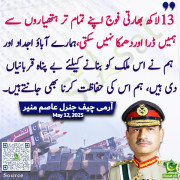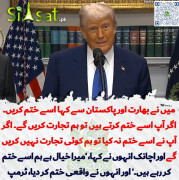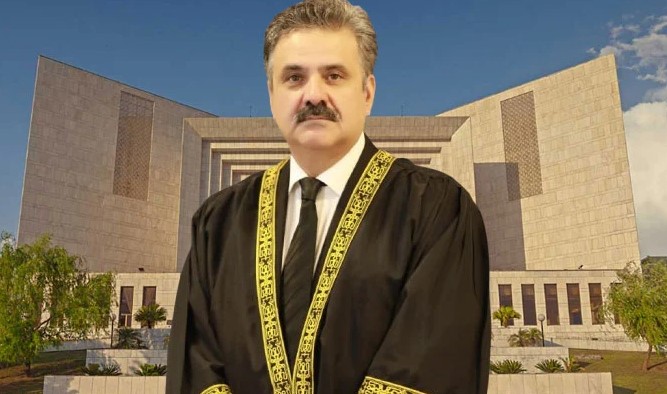Bei Facebook anmelden
Melde dich bei Facebook an, um dich mit deinen Freunden, deiner Familie und Personen, die du kennst, zu verbinden und Inhalte zu teilen.
 www.facebook.com
www.facebook.com
اس سال اکانومی کا نوبل پرائز تین لوگوں کو ملا، جس میں سے دو لوگ میاں بیوی Abijeet Banerjee اور اس کی بیوی Esther Duflo جو پہلے Banerjee کی MIT یونیورسٹی میں شاگرد تھی، مگر بعد میں انہوں نے شادی کی۔۔
ان دونوں MIT کے نوبل انعام یافتہ couple کی ریسرچ سے صرف انڈیا میں 5 ملین غریب لوگوں کو فائدہ پہنچا ھے اور وہ غربت کی لکیر سے اوپر آگیے ھیں۔۔۔اور ان کا بتایا ھوا Poverty model آج دنیا کے باقی غریب ممالک میں بھی اپنایا جارھا ھے۔۔۔غربت کے اس ماڈل میں Banerjee کہتا ھے، غریب کو سب سے پہلے اس کی صحت پر توجہ دینی چاھیے۔۔۔دنیا کا ھر غریب شخص مہنگے علاج کی طرف بھاگتا ھے اور وہ بنیادی علاج جس میں vaccination اور oral dehydration یا گھانا پینا، اس پر توجہ نہی دیتا۔۔۔۔غربت کی ایک وجہ بیماریوں سے جنگ بھی ھے۔۔۔ ریسرچ میں سب سے اھم بات جو نوٹ کی گئی، وہ یہ کہ جو غریب شخص ھے وہ کھانے پینے اور صحت پر کم مگر entertainment پر زیادہ پیسہ خرچ کرتا ھے۔
اسی طرح اس کی بیوی Esther کے ماڈل کے مطابق , آپ گاوں دیہاتوں میں عورت کو گھر کے معاملات کا انچارج بنا دو تو اس سے بہت سے مسائل حل ہوسکتے ھیں۔۔
پاکستان حکومت کو بھی ایک ٹاسک فورس بنا کر اس نوبل انعام یافتہ کا غربت کا ماڈل اپنے ملک میں اپنا کر اپنے ملک کے غریب لوگوں کی مدد کرنی چاھیے۔ ( ویسے میرا نہی خیال کہ پاکستان کی کسی بھی سیاسی پارٹی نے اس ریسرچ ماڈل کو پڑھنے یا سمجھنے کی کوشش کی ھوگی).
Abhijit Banerjee’s prescription for Indian economy: ‘Stop PMO interference, raise NREGA wages, pray’
The economist, who was awarded the Nobel prize on Monday, spoke just last week about what Indian policymakers need to do.

Economist Abhijeet Banerjee. | via YouTube
Abhijit Banerjee, the renowned economist who was one of three awarded the Nobel prize for economics on Monday, put together some prescriptions for what the Indian economy needs right now. The last item on the list? “Pray.” On the next list, for the longer run? “Pray more.”
Banerjee was speaking in response to Raghuram Rajan, another renowned economist and former Chief Economic Adviser to the Indian prime minister, as part of the OP Jindal Lectures at Brown University in the United States last week.
The university has uploaded the entire video of the talk, which you can watch here. The first part is Rajan’s lecture, followed by Banerjee’s response at around the 1 hour-5-minute mark, after which both take questions.
Simply put though, Banerjee’s comments about the need for Indian policymakers to pray are a reflection of how mountainous the task of putting the economy on the right path appears, at least in his estimation.
Here are the reasonably self-explanatory slides in question:
Banerjee’s prescriptions focus on putting money into the hands of the Indian public, whether that is through raising the wages for India’s employment guarantee schemes, raising prices for farmers and letting the rupee slide. He also advocates clearer regulation that does not depend on the government controlling what people think or how they act.
He has, over his career, frequently questioned the approaches of many governments in attempting to hide the true condition of fiscal numbers through creative accounting, and was among those who wrote a letter to the current administration calling for an end to political meddling in statistical institutions.
Here Banerjee says it is important the the government’s budgeting not relying on presumed economic miracles.
It is of course worthwhile noting that Banerjee has always been quite straightforward in his opinion of government policies and the way they are implemented. Indeed, he began his talk at Brown University by offering to go over the same ground as Rajan – without being quite as “judicious” in his language.
This gives us a good sense of what the Nobel laureate sees as the problems that has led to the current downturn. Banerjee, in his comments, draws the storyline from the previous Congress-led United Progressive Alliance and then brings it forward to the way the current government responded to various economic challenges.
One thing to remember here: Banerjee consulted with the Congress as it came up with a version of a basic minimum income programme to include in its election manifesto earlier this year, called NYAY.
Banerjee has been a regular critic of a number of the current government’s moves, particularly Modi’s flagship effort of demonetisation, which he has called weird and bewildering. He has also criticised the implementation of the Goods and Services Tax, though Banerjee is generally in favour of the move, and has been critical of the way the government and the central bank has responded monetarily.
This is not the only opportunity to understand Banerjee’s opinions on what the Indian economy needs. In a piece in April, he argued that India has to move towards some form of a universal basic income, writing that, “it won’t be easy, but if the political will is there, it should be possible to set aside one extra per cent of GDP every year for a few years... there is some chance such an intervention will jump start our stuttering growth process.”
He also co-wrote with Rajan a summary of prescriptions culled from a book that the two edited, along with others last year, that offered eight directives for India as it moves forward including less burdensome regulation and ending the presumed federal backing of all state debt.
Indeed, Banerjee and Esther Duflo, another renowned economist who won the Nobel with him, have a book coming out this month that is a follow-up to Poor Economics, a paper-turned-book written by the duo a decade ago, which will undoubtedly be closely read now to understand the thinking of the two most recent economics Nobel laureates.
https://scroll.in/article/940476/ab...-stop-pmo-interference-raise-nrega-wages-pray
Last edited by a moderator:





























